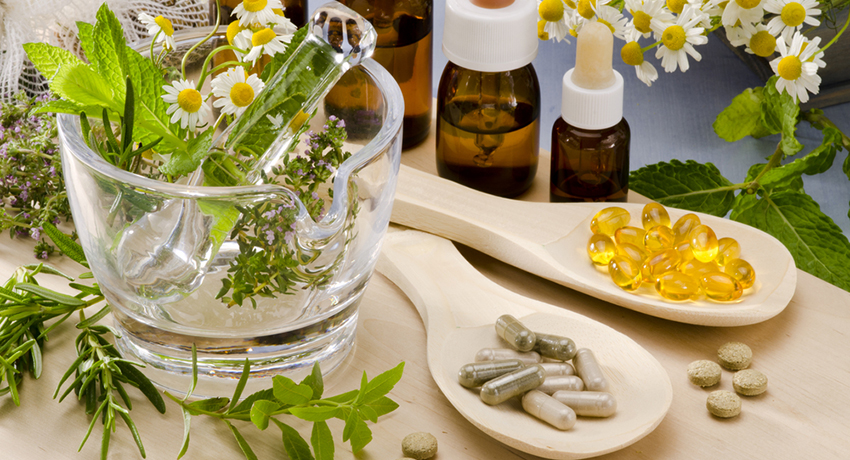One in Three Supplements Are Fake

Herbal supplements image via shutterstock
Last month, we reported that a methamphetamine analog was found in supplements sold at popular vitamin stores like GNC and Natural Health Shoppe. In that story, I sarcastically joked that the system is so unregulated that you could crush up baking soda, put it is a capsule, sell it on the Internet as “Super Fat Burn” and make a million dollars. But it turns out the joke is on me, because I had no idea exactly how right I was. My theory was proven by DNA testing.
Americans spend an estimated $5 billion on herbal supplements and they are all unregulated. It’s so strange to me that people will just take a company’s word for it. Is it the shiny packaging? The expensive price? Or just the fact that they can’t believe that in today’s society, you could sell something in a store like GNC or Target that would be fake, or worse, harmful?
Canadian researchers used DNA tests to show that many pills labeled as “healing herbs” are, according to the New York Times, “little more than powdered rice and weeds.”
The researchers used DNA barcoding to conduct a blind test of the authenticity for 44 popular herbal products representing 12 companies and 30 different species of herbs, and 50 leaf samples collected from 42 herbal species. Their lab also assembled the first standard reference material herbal barcode library from 100 herbal species that were used to identify the unknown herbal products and leaf samples.
The results, which were published in October in the journal BMC medicine, found that most (59 percent) of the products tested contained DNA barcodes from plant species that were not listed on the labels. The only good news is that researchers were able to authenticate almost half (48 percent) of the products, but the bad news is that one-third of these also contained contaminants and or fillers not listed on the label.
Product substitution occurred in 30 of 44 products tested and only two of 12 companies had products without any substitution, contamination, or fillers. Just two! Some of the contaminants the researchers found are known to pose serious health risks to consumers.
The New York Times reports that two of the most common herbal supplements that Americans consume, St. Johns Wort and echinacea, were the most contaminated and poor quality, if even “real” at all:
Among their findings were bottles of echinacea supplements, used by millions of Americans to prevent and treat colds, that contained ground up bitter weed, Parthenium hysterophorus, an invasive plant found in India and Australia that has been linked to rashes, nausea and flatulence.
Two bottles labeled as St. John’s wort, which studies have shown may treat mild depression, contained none of the medicinal herb. Instead, the pills in one bottle were made of nothing but rice, and another bottle contained only Alexandrian senna, an Egyptian yellow shrub that is a powerful laxative. Gingko biloba supplements, promoted as memory enhancers, were mixed with fillers and black walnut, a potentially deadly hazard for people with nut allergies.
The study says that “most of the herbal products tested were of poor quality, including considerable product substitution, contamination and use of fillers. These activities dilute the effectiveness of otherwise useful remedies, lowering the perceived value of all related products because of a lack of consumer confidence in them.”
Researchers suggest in the study that the herbal industry should embrace DNA barcoding for authenticating herbal products through testing of raw materials used in manufacturing products. This would provide consumers with safe, high quality herbal products. So this way, the next time you buy vitamin B supplements, you actually are getting vitamin B and not anabolic steroids.


